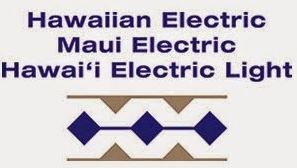Electric Companies Warn of Bitcoin Scam
 Hawaiian Electric, Maui Electric and Hawaiʻi Electric Light reports that scammers are targeting customers, and the latest surge of callers are threatening businesses with immediate disconnection if they don’t get paid in the digital currency known as bitcoin.
Hawaiian Electric, Maui Electric and Hawaiʻi Electric Light reports that scammers are targeting customers, and the latest surge of callers are threatening businesses with immediate disconnection if they don’t get paid in the digital currency known as bitcoin.
Like virtually all other U.S. utilities, the Hawaiian Electric Companies do not accept bitcoin as a
form of payment. Earlier this month, utilities from across the mainland began reporting this
relatively new scam, with hundreds of reports of fraudulent callers demanding bitcoin from
customers to pay supposedly “past due” bills, according to Utilities United Against Scams
(UUAS), a national consortium that includes the Hawaiian Electric Companies.
On Oʻahu, three businesses have reported being scammed, paying hundreds of dollars at bitcoin
machines after callers threatened disconnection of their electric service if immediate payment
wasn’t made. The scammers gave customers a callback number, which provided automated
prompts similar to ones used by the companies.
The customers were also sent threatening email with a “disconnection notice” on letterhead with
an outdated Hawaiian Electric logo. The notice provided a QC code to scan at a local bitcoin
machine, converting dollars to the digital currency.
“This is simply a new twist on an old scam but our same advice applies: just hang up,” said Jim
Alberts, senior vice president for customer service of the Hawaiian Electric Companies. “Whether
it’s bitcoin, gift cards or money orders, our companies aren’t going to threaten you or have you
running around town to meet unorthodox payment demands.”
Customers should know:
- If you receive a call from someone or an automated recording from Hawaiian Electric,
Maui Electric or Hawaiʻi Electric Light demanding immediate payment over the phone or
via prepaid debit cards or bitcoin, it’s a scam. - If the caller asks to meet you to pick up a payment or provides directions to a bitcoin
machine, it’s a scam. - If the caller says your account is delinquent and threatens to shut off your power
immediately unless payment is made, it’s a scam.
Customers should simply hang up if they receive such a call, and then dial the customer service
line that is printed on their monthly electric bills or listed on their company’s website. They should
not call the number displayed on the caller ID, even if it says “HECO,” “MECO” or “HELCO.”
The scammers appear to be calling customers at random, and the recent calls have been to
Hawaiian Electric customers on Oʻahu. Scammers are becoming more persistent and aggressive,
insisting that a bill is overdue even if the customer knows it’s been paid.
For more information, go to www.hawaiianelectric.com/stopscams;
www.hawaiielectriclight.com/stopscams; and www.mauielectric.com/stopscams.
Sponsored Content
Comments





_1770333123096.webp)


